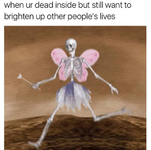|
|
| FAQ/Help |
| Calendar |
| Search |
|
#1
|
||||
|
||||
|
There is a move afoot to define Combat PTSD (and presumably Combat CPTSD) as strictly a military experience definition. Why this is being pushed so hard I don't understand. What is the motive? I think the whole arguement is superficial and not based on sound logic. If one wanted to start two classifications to seperate out the experiences you could (but I wouldn't) create two classes of Combat PTSD, namely Military Combat PTSD and Civilian Combat PTSD. Clearly, beyond a shadow of a doubt, civilians are subject to, and victims of, active combat within active combat zones every bit as much as the military personel. The proof is that, in general, more civilians are killed, and wounded, in active combat zones, than soldiers. Clearly, civilians suffer PTSD as a result of being in active combat zones. To say that it is not combat PTSD is not logical. If there was no combat in those zones they(the civilians) would not have PTSD as a result of combat in those zones. We know that civilians are very much targeted in active, combat zones just like military personel. The examples are endless and legendary. That a civilian doesn't have the good fortune to have a weapon to defend themselves doesn't mean that they wouldn't if the opportunity presented itself. War history is replete with examples where civilians, who were combatants without weapons, became full blown combatants when they gained access to weapons. Who in their right mind wouldn't defend themselves if given the opportunity? Shalom.
Last edited by SaharaSon; Jul 08, 2017 at 02:41 PM. Reason: spelling |
Trace14
|
RubyRae
|
|
#2
|
|||
|
|||
|
I hadn't heard about that move.But I take civilian as meaning those that develop PTSD(or CPTSD) in other ways besides the military,like me,from things I witnessed and experienced in childhood.
IDK. But,I am experiencing some PTSD symptoms right now and I'm probably not even responding properly or saying anything at all related to what you posted.Sorry. |
SaharaSon
|
|
#3
|
|||
|
|||
|
Ok,I re-read your post and I get what you're saying now...
|
SaharaSon
|
SaharaSon
|
|
#4
|
||||
|
||||
|
Quote:
__________________
 "Caught in the Quiet" |
SaharaSon
|
|
#5
|
||||
|
||||
|
Quote:
Last edited by SaharaSon; Jul 08, 2017 at 10:36 PM. Reason: spelling |
|
#6
|
||||
|
||||
|
RubyRae, I hope my long answer back to Trace will help to further clear up the roles the military and civilians both play in dangerous active combat zones. It's a scary place to be, weather you are military, or you are civilian. The important thing is not what you are wearing, and weather you are carrying a gun. The important thing is weather, you, as a soldier or a civilian, are in the line of fire, to be shot to death, or exploded by ordinace, or even gased. Clearly, it is more dangerous to be a civilian in a active combat zone than to be a soldier. No question about it. Check the statistics. Thanks RubyRae. I hope the topic is not too painful.
 Shalom. Shalom.
|
|
#7
|
||||
|
||||
|
I guess this is why my T encourages me to stay away from labels and just focus on symptoms, as T says it doesn't matter what the trigger is, but it is the response / resultant impact on wellbeing that is important.
__________________
Soup |
SaharaSon
|
SaharaSon
|
|
#8
|
||||
|
||||
|
I think Trace may be on to something. Could it be so the VA (or other veterans organizations in other countries) has a unique classification for military service members who have combat PTSD or CPTSD for treatment purposes.
It totally agree that civilians caught in a war situation or pow situation can suffer the same, if not worse, as an armed soldier.
__________________
"Do you know whatís really scary? You want to forget something. Totally wipe it off your mind. But you never can. It canít go away, you see. AndÖ and it follows you around like a ghost." ~ A Tale of Two Sisters (Janghwa, Hongryeon) (2003) "I feel like an outsider, and I always will feel like one. Iíve always felt that I wasnít a member of any particular group." ~ Anne Rice |
SaharaSon
|
SaharaSon
|
|
#9
|
||||
|
||||
|
Quote:

|
SoupDragon
|
|
#10
|
||||
|
||||
|
Quote:
Shalom. |
|
#11
|
||||
|
||||
|
Quote:
__________________
"Do you know whatís really scary? You want to forget something. Totally wipe it off your mind. But you never can. It canít go away, you see. AndÖ and it follows you around like a ghost." ~ A Tale of Two Sisters (Janghwa, Hongryeon) (2003) "I feel like an outsider, and I always will feel like one. Iíve always felt that I wasnít a member of any particular group." ~ Anne Rice |
SaharaSon
|
SaharaSon
|
|
#12
|
||||
|
||||
|
Quote:
 Shalom. Shalom.
|
| Reply |
|
|